21 start with E start with E
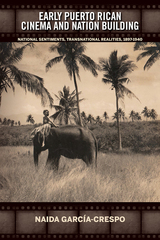
Published by Bucknell University Press. Distributed worldwide by Rutgers University Press.
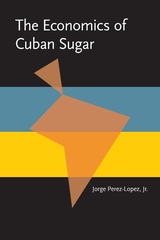
Pérez-López examines the various efforts at economic planning in the years following the Revolution and provides in-depth analysis of aspects particular to the sugar industry: cultivation, mechanization, energy and transportation, refining and the manufacture of sugar derivatives, production costs, and foreign trade.
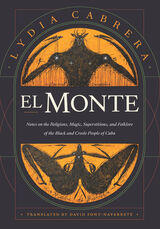

After committing an irreparable crime, the narrator of The Emperor waits in his bedroom for the police to arrest him. His past reverberates inside of him like a drum: his youth spent in captivity as a zonbi, under the control of a charlatan Vodou leader, and many an alienating dawn delivering the daily newspaper through the cutthroat neighborhoods of Port-au-Prince, Haiti. He now has blood on his hands because of the woman on the bus—the only woman he had ever loved.
Part crime fiction, part fable gone awry, The Emperor invites readers to follow the narrator’s life as he moves from the Haitian countryside to the sprawling city, learning about the corruptible nature of power in his quest for freedom. Along the way, Makenzy Orcel blends the marvelous with the real by introducing readers to an unforgettable cast of characters including the Very Old Sheep, a deceitful Emperor, and the narrator’s so-called Enlightened Colleague. Written with Orcel’s distinctive verve, this novel offers readers a story set in contemporary Haiti that is rich in poetry and full of narrative intrigue.
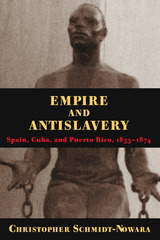
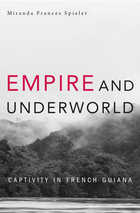
In the century after the French Revolution, the South American outpost of Guiana became a depository for exiles—outcasts of the new French citizenry—and an experimental space for the exercise of new kinds of power and violence against marginal groups. Miranda Spieler chronicles the encounter between colonial officials, planters, and others, ranging from deported political enemies to convicts, ex-convicts, vagabonds, freed slaves, non-European immigrants, and Maroons (descendants of fugitive slaves in the forest). She finds that at a time when France was advocating the revolutionary principles of liberty, equality, and fraternity, Guiana’s exiles were stripped of their legal identities and unmade by law, becoming nonpersons living in limbo.
The French Revolution invented the notion of the citizen, but as Spieler shows, it also invented the noncitizen—the person whose rights were nonexistent. Empire and Underworld discovers in Guiana’s wilderness a haunting prehistory of current moral dilemmas surrounding detainees of indeterminate legal status. Pairing the history of France with that of its underworld and challenging some of the century’s most influential theorists from Hannah Arendt to Michel Foucault, Spieler demonstrates how rights of the modern world can mutate into an apparatus of human deprivation.
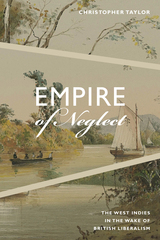
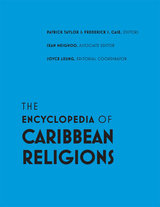

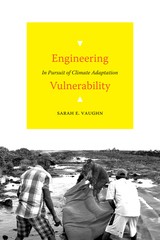
Duke University Press Scholars of Color First Book Award recipient
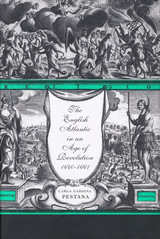
Between 1640 and 1660, England, Scotland, and Ireland faced civil war, invasion, religious radicalism, parliamentary rule, and the restoration of the monarchy. Carla Gardina Pestana offers a sweeping history that systematically connects these cataclysmic events and the development of the infant plantations from Newfoundland to Surinam.
By 1660, the English Atlantic emerged as religiously polarized, economically interconnected, socially exploitative, and ideologically anxious about its liberties. War increased both the proportion of unfree laborers and ethnic diversity in the settlements. Neglected by London, the colonies quickly developed trade networks, especially from seafaring New England, and entered the slave trade. Barbadian planters in particular moved decisively toward slavery as their premier labor system, leading the way toward its adoption elsewhere. When by the 1650s the governing authorities tried to impose their vision of an integrated empire, the colonists claimed the rights of "freeborn English men," making a bid for liberties that had enormous implications for the rise in both involuntary servitude and slavery. Changes at home politicized religion in the Atlantic world and introduced witchcraft prosecutions.
Pestana presents a compelling case for rethinking our assumptions about empire and colonialism and offers an invaluable look at the creation of the English Atlantic world.
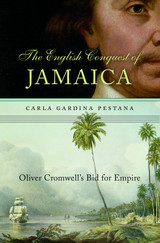
In 1654, England’s Lord Protector Oliver Cromwell conceived a plan of breathtaking ambition: the conquest of Spain’s vast American empire. As the first phase of his Western Design, a large expedition sailed to the West Indies, under secret orders to take Spanish colonies. The English Conquest of Jamaica presents entrenched imperial fantasies confronting Caribbean realities. It captures the moment when the revolutionary English state first became a major player in the Atlantic arena.
Although capturing Jamaica was supposed to be only the first step in Cromwell’s scheme, even that relatively modest acquisition proved difficult. The English badly underestimated the myriad challenges they faced, starting with the unexpectedly fierce resistance offered by the Spanish and other residents who tenaciously defended their island. After sixteen long years Spain surrendered Jamaica and acceded to an English presence in the Americas in the 1670 Treaty of Madrid. But by then, other goals—including profit through commerce rather than further conquest—had superseded the vision behind the Western Design.
Carla Gardina Pestana situates Cromwell’s imperial project in the context of an emerging Atlantic empire as well as the religious strife and civil wars that defined seventeenth-century England. Though falling short of its goal, Cromwell’s plan nevertheless reshaped England’s Atlantic endeavors and the Caribbean region as a whole. Long before sugar and slaves made Jamaica Britain’s most valuable colony, its acquisition sparked conflicts with other European powers, opened vast tropical spaces to exploitation by the purportedly industrious English, and altered England’s engagement with the wider world.

In the early fall of 1897, yellow fever shuttered businesses, paralyzed trade, and caused tens of thousand of people living in the southern United States to abandon their homes and flee for their lives. Originating in Cuba, the deadly plague inspired disease-control measures that not only protected U.S. trade interests but also justified the political and economic domination of the island nation from which the pestilence came. By focusing on yellow fever, Epidemic Invasions uncovers for the first time how the devastating power of this virus profoundly shaped the relationship between the two countries.
Yellow fever in Cuba, Mariola Espinosa demonstrates, motivated the United States to declare war against Spain in 1898, and, after the war was won and the disease eradicated, the United States demanded that Cuba pledge in its new constitution to maintain the sanitation standards established during the occupation. By situating the history of the fight against yellow fever within its political, military, and economic context, Espinosa reveals that the U.S. program of sanitation and disease control in Cuba was not a charitable endeavor. Instead, she shows that it was an exercise in colonial public health that served to eliminate threats to the continued expansion of U.S. influence in the world.
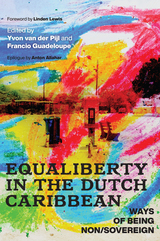
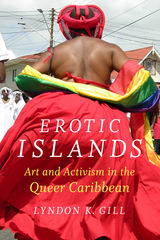
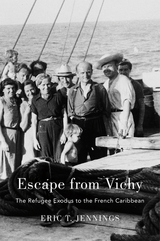
In the early years of World War II, thousands of political refugees traveled from France to Vichy-controlled Martinique in the French Caribbean, en route to what they hoped would be safer shores in North, Central, and South America. While awaiting transfer from the colony, the exiles formed influential ties—with one another and with local black dissidents. Escape from Vichy recounts this flight from the refugees’ perspectives, using novels, unpublished diaries, archives, memoirs, artwork, and other materials to explore the unlikely encounters that fueled an anti-fascist artistic and intellectual movement.
The refugees included Spanish Republicans, anti-Nazi Germans and Austrians, anti-fascist Italians, Jews from across Europe, and others fleeing violence and repression. They were met with hostility by the Vichy government and rejection by the nations where they hoped to settle. Martinique, however, provided a site propitious for creative ferment, where the revolutionary Victor Serge conversed with the anthropologist Claude Lévi-Strauss, and the Surrealist André Breton met Negritude thinkers René Ménil and Aimé and Suzanne Césaire. As Eric T. Jennings shows, these interactions gave rise to a rich current of thought celebrating blackness and rejecting racism.
What began as expulsion became a kind of rescue, cut short by Washington’s fears that wolves might be posing in sheep’s clothing.
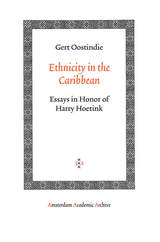
The ten prominent scholars contributing to this book focus on the significance of ethnicity for social structure and national identity in the Caribbean. Their essays span a period from the initial European colonization right through today’s paradoxical balance sheet of decolonization. They deal with the entire region as well as the significance of the diaspora and the continuing impact of metropolitan linkages. The topics addressed vary from the international repercussions of Haiti’s black revolution through the position of French Caribbean békés and the Barbadian ‘redlegs’ to race in revolutionary Cuba; from Puerto Rican dance etiquette through the Latin American and Caribbean identity essay to the discourse of Dominican nationhood; and from a musée imaginaire in Guyane through Jamaica’s post independence culture to the predicament of Dutch Caribbean decolonization. Taken together, these essays provide a rare and extraordinarily rich comparative perspective to the study of ethnicity as a crucial factor shaping both intimate relations and the public and even international dimension of Caribbean societies.
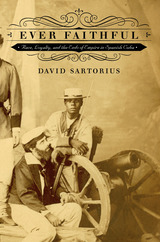

Exposing the powerful contradictions between empowering rights and legal rites
By investigating the harms routinely experienced by the victims and survivors of domestic violence, both inside and outside of law, Everyday Harm studies the limits of what domestic violence law can--and cannot--accomplish. Combining detailed ethnographic research and theoretical analysis, Mindie Lazarus-Black illustrates the ways persistent cultural norms and ingrained bureaucratic procedures work to unravel laws designed to protect the safety of society’s most vulnerable people.
Lazarus-Black’s fieldwork in Trinidad traces a story with global implications about why and when people gain the right to ask the court for protection from violence, and what happens when they pursue those rights in court. Why is itthat, in spite of laws designed to empower subordinated people, so little results from that legislation? What happens in and around courts that makes it so difficult for people to obtain their legally available rights and protections? In the case of domestic violence law, what can such legislation mean for women’s empowerment, gender equity, and protection? How do cultural norms and practices intercept the law?
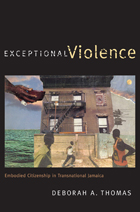
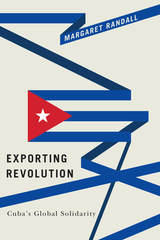
READERS
Browse our collection.
PUBLISHERS
See BiblioVault's publisher services.
STUDENT SERVICES
Files for college accessibility offices.
UChicago Accessibility Resources
home | accessibility | search | about | contact us
BiblioVault ® 2001 - 2024
The University of Chicago Press









